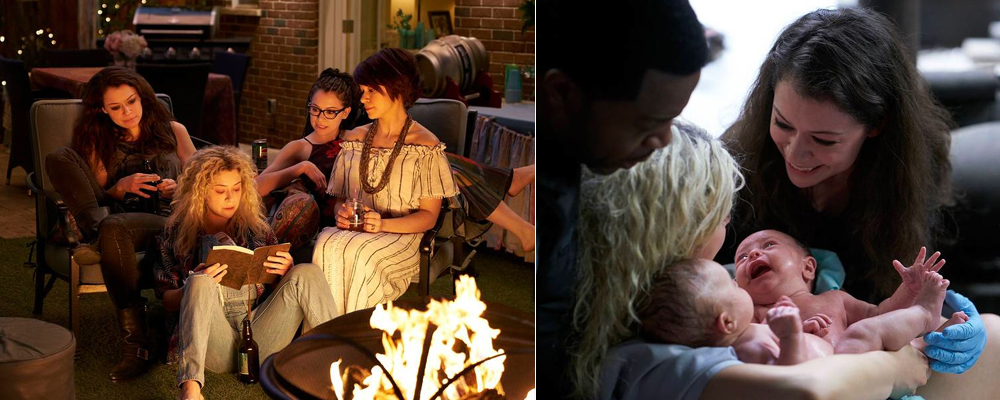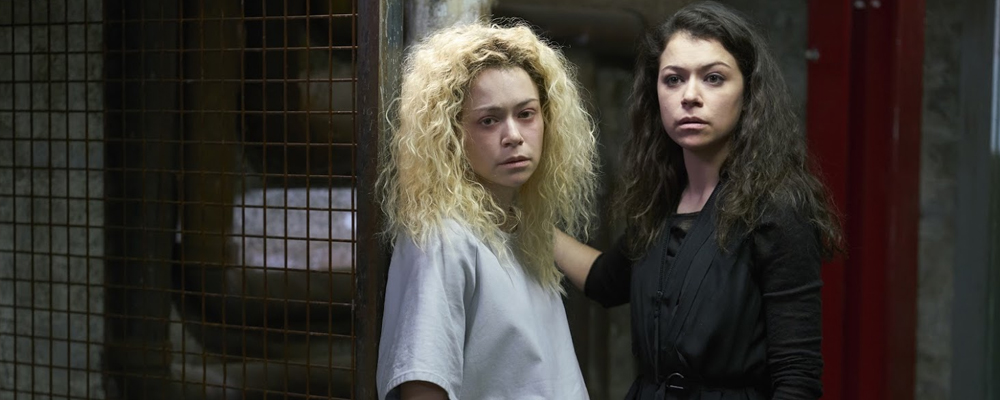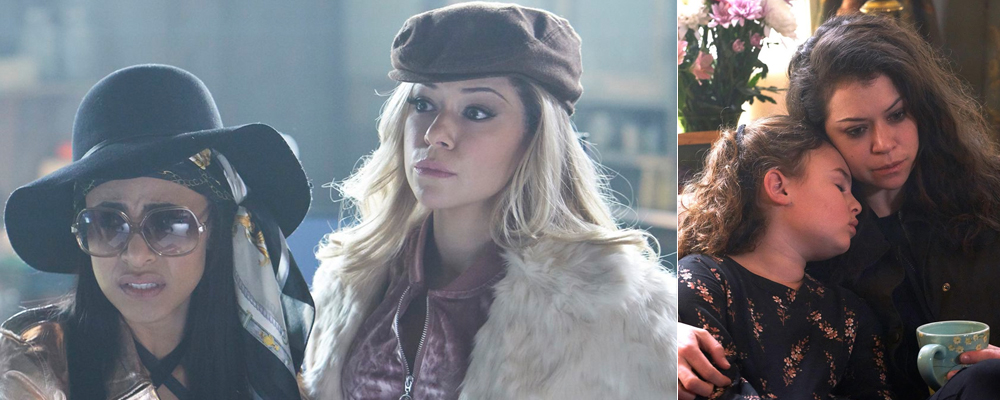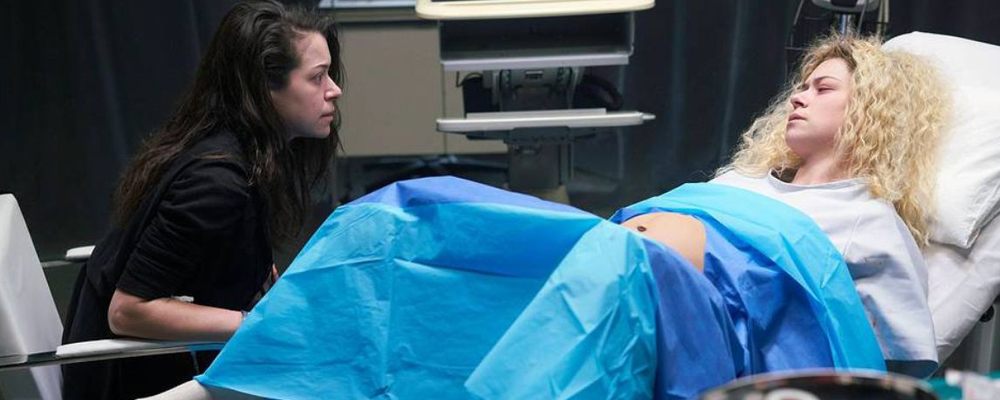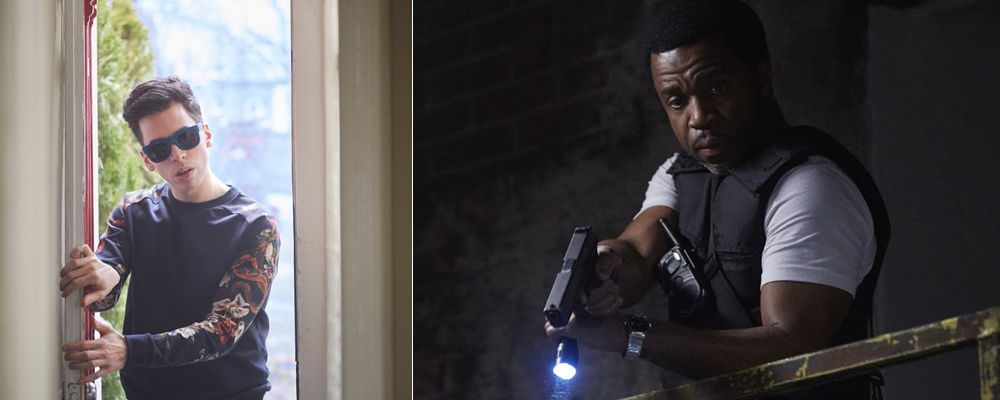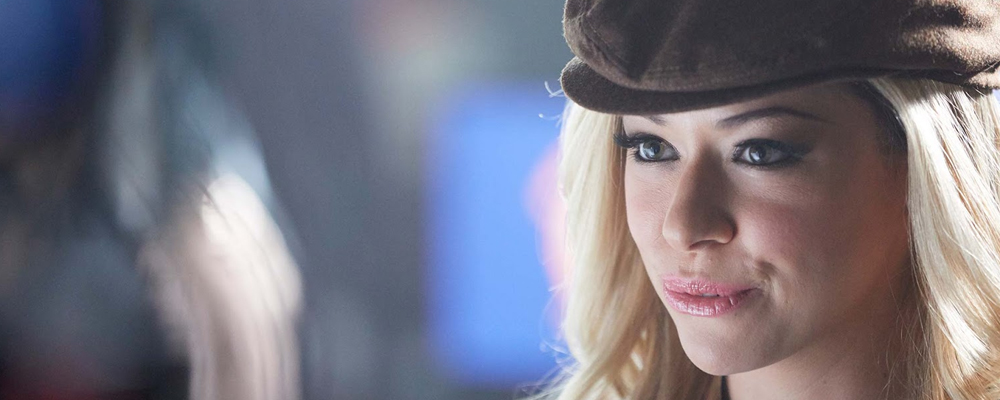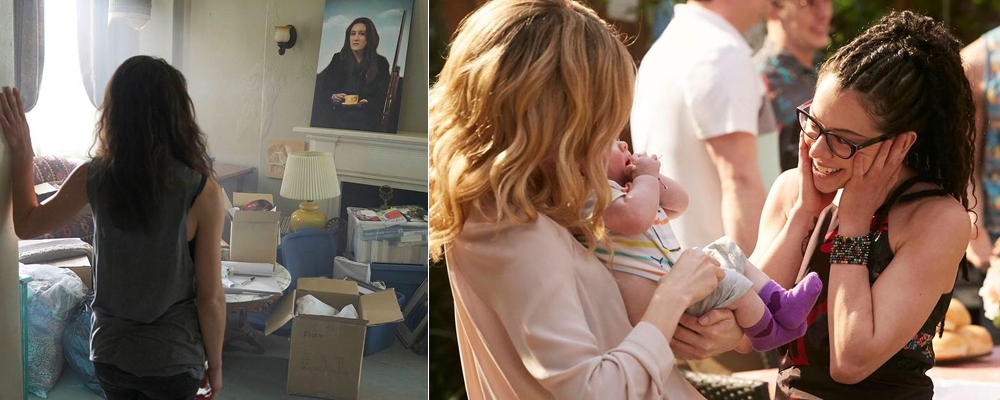Sestrahood and Domestic Bliss Prevail as ‘Orphan Black’ Comes to a Close
Tony Sokol
The Leda Project has come to an end. Neolution is bankrupt and the world is safe from a genetically modified future. At least on TV. “Orphan Black,” the Canadian science fiction television series running on BBC, is over after five seasons. It started on March 30, 2013, when Sarah Manning, played by Tatiana Maslany, saw the death of a female cop who looked all too familiar. So familiar, in fact, she was also played by Tatiana Maslany. To call the series a tour de force is an understatement as Maslany lost herself by finding herself in Sarah Manning’s diverse set of sestras, Alison Hendrix, Cosima Niehaus, Beth Childs, Katja Obinger and Helena.
Maslany is almost unrecognizable as the same actress as she’s spun through these parts. Hell, there was a time in season 3 this reviewer assumed other characters were also being played by Maslany, even during commercials while flipping through other channels. All the performances on the series are stellar, the acting as natural as could be with such mutant characters, some with fully functional tails. Felix Dawkins (Jordan Gavaris) chased some of that as the orphaned brother to the second blackest sheep of the family.
The Clone Club was on the move throughout the final season of “Orphan Black.” Rachel Duncan, the most successful of the sestras, started the season as a top executive at Neolution, breaking bread and cracking DNA with P.T. Westmorland (Stephen McHattie). The spiritual father of the movement wrote the book on genetic potential before his presumed death in 1898, and mysterious reappearance on a remote island just short of paradise. Rachel exposed him and his company, giving her sestras miles of files on international bribes along with Sarah’s daughter Kira (Skyler Wexler), and ripped out her own eye so she wouldn’t be surveilled.
“Orphan Black” sacrificed many of its key players in season 5. A few weeks ago, Mrs. S (Maria Doyle Kennedy) gave her life for a secret meeting with Ferdinand (James Frain), who choked the truth out of Veera, AKA MK, the untreatable phantom conspiracy leak, also played by Maslany. The good Castor clone Ira (Ari Millen) was put to sleep by his own “mother” Dr. Virginia Coady (Kyra Harper), as he thought he was being given a cure to his inherited terminal condition.
The finale opens with one last flashback that frames the episode. Sara and Siobhan discuss aborting Kira in front of a Planned Parenthood site. At first it appears the flashback is there to mirror Helena delivering her miracle babies. But the scene continues until its apparent meaning is how Sarah chose this life, that daughter and those disparate, desperate clones as family. The overall arc of “Orphan Black” doesn’t turn out to be discovering who these women are or who should have control over how they live and die. It is they are all linked beyond genetic disposition now. Detective Art Bell (Kevin Hanchard), who isn’t even related by blood, went beyond the badge this season. But look at him masterfully handle those babies, equally adept with forceps or forearms as he is with firearms.
The delivery scene is amazing. Shot with the twin Ledas face to face most of the time. It is no less a marvel of planning than a closing scene of the four sestras lounging together at leisure, while Orange and Purple babies are kept at bay. But the flawless splicing of the gene pool after Helena’s water breaks has an immediacy and an obsessive camera with a jones for detail.
Walter White is a bad influence on bald guys with goatees across the vast television landscape and beyond. P.T. sharpens his pains with high-grade meth, and makes a bad break with his personal physician. Not that the young doctor would be much help. There is no known cure for a face that’s been crushed in by an oxygen tank. Both twins get to kill a scientific parent. It’s a family thing.
The entire second half follows the sestras into their own version of domestic bliss, except Sarah, who only knows the bliss of chaos. But in every scene, disaster looms. It hangs over the baby shower, the halls of the high school where a truant student passes on a test, every room in the family homes, and on the nice new blue suit Donnie Hendrix (Kristian Bruun) sports as regional manager of a concrete business. He learned about concrete the hard way, burying Max Headroom once and for all. Doom and gloom threaten every space but Helena’s nursery which needs no danger, as she feed her sons sand, and lets them play with rocks. The future is uncertain for the mutations as they put new Leda project into effect. The Clone Club goes international and Cosima and Delphine (Evelyne Brochu) smuggle a miracle cure though customs throughout South America on their way to Brazil.
For five years, “Orphan Black” infused science fiction genre television with a healthy dose of feminist futurism. Maslany, who won a Best Actress Emmy for her role, probably could have pulled off playing Ira, Felix and Art if she wanted to, and with no loss of empathy, drive or subtlety. Sure, there were times when one character bled into the mannerisms of another, but we put that off to shared genes and common goals. While the ending is a little tame, the only threat being a looming G.E.D. makeup test and moving van insurance, it puts a satisfying close to a story with more loose ends than Helena’s bleach job. We can see the roots. That’s always been the point.
Orphan Black‘s series finale aired Aug. 12. All five seasons are available on BBC.

